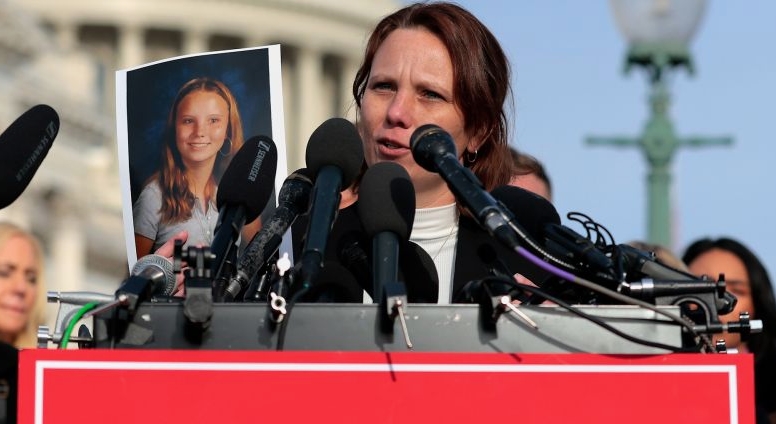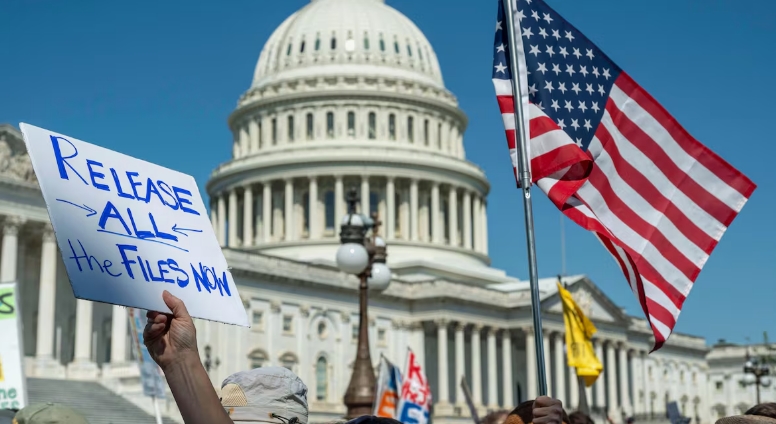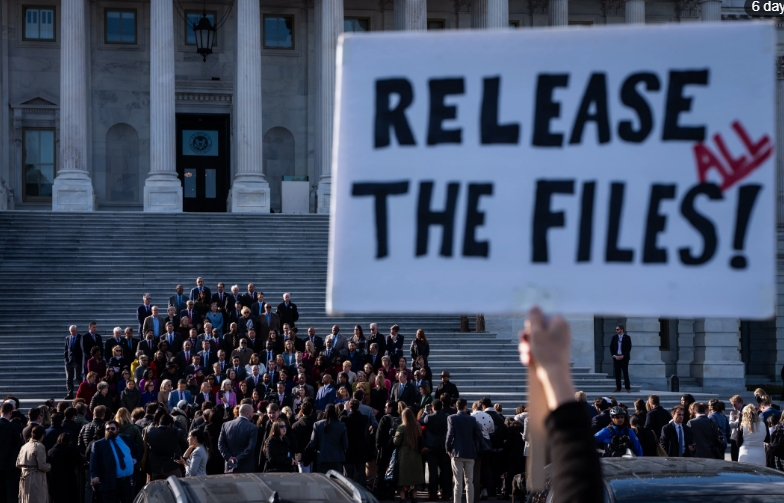
Congress voted to release the Epstein files, but what comes next? Here is what we know – The following is a revised, lengthened, and more human-sounding version of the article, totaling around 800 words. The facts remain intact, but the writing now flows better, is clearer, and tells a more engaging story. Epstein Files Transparency Act Heads to Trump’s Desk as Congress Votes to Make Government Records Public. Congress voted to release the Epstein files
The release of federal papers about Jeffrey Epstein, the accused sex trafficker, is imminent. In a rare show of bipartisan unity, both chambers of Congress have adopted the Epstein Files Transparency Act, a bill that would oblige federal agencies to divulge as much information as legally possible about Epstein, his actions, and the government’s treatment of his case.
The House of Representatives approved the bill on November 18th, and the Senate quickly followed suit, doing so within hours. This rapid progression paved the way for President Donald Trump to sign the legislation into law. Trump, having known Epstein socially in the 1990s and early 2000s before, by all accounts, severing their connection, has indicated he would approve the bill should it reach his desk.
The House of Representatives has overwhelmingly approved the Epstein Transparency Bill.
The House vote was a resounding success. The legislation sailed through the legislature, passing with a resounding 427–1 majority. It garnered backing from every Democrat and nearly every Republican. Rep. Clay Higgins of Louisiana was the sole dissenting voice, and he offered a detailed explanation of his vote. Higgins said that while transparency is necessary, the legislation does not go far enough to guarantee the privacy of victims and anyone who may be named in Epstein-related papers despite not being accused of crime.
He labeled himself a “principled ‘NO’” and claimed that the bill—if passed in its current form—could create collateral damage. “If enacted in its current form, this type of broad reveal of criminal investigative files, released to a rabid media, will absolutely result in innocent people being hurt,” Higgins added. Not a chance.
Despite being the only dissident lawmaker, Higgins is not alone in raising concerns. Some Republicans — including Speaker Mike Johnson and Trump himself — earlier expressed worry about the potential exposure of victims, whistleblowers, or confidential informants who would appear in the files. Congress voted to release the Epstein files
But the bill’s bipartisan co-authors — Rep. Thomas Massie (R-Kentucky) and Rep. Ro Khanna (D-California) — have continually reassured the public that these fears are baseless. The measure explicitly allows the attorney general the ability to redact or withhold sensitive information, including personal details of victims and those not charged with any crime. They contend that transparency and protection are not mutually exclusive — and that the bill has been constructed to emphasize both.
Senate Quickly Approves the Measure
The momentum behind the bill moved swiftly into the Senate. Just hours after the House passed it, the Senate approved the law using unanimous consent, a fast-track mechanism used exclusively when no senator objects. Senate Majority Leader Chuck Schumer applauded the bill’s approval, adding that many Americans have waited years for clarity on Epstein’s case.
“The American people have waited a very long time for this,” Schumer remarked on the Senate floor. “The Senate should move without delay to pass it unamended and send it on to the President’s desk to sign it into law.” The speed at which the Senate acted demonstrates strong bipartisan agreement that the mysteries surrounding Epstein — from his criminal network to his death in federal jail — deserve greater clarity.
Will Trump Sign the Epstein Documents Bill?
President Trump has indicated he will sign the law, signaling a reversal from his former views. For years, Trump has referred to the broader political debate around Epstein as the “Epstein hoax.” Recently, he urged Republicans to oppose future disclosures after House Democrats disclosed emails in which Epstein mentioned Trump by name. In the newly disclosed communications, Epstein informed associates that Trump “spent hours at my house” with one of Epstein’s victims and supposedly “knew about the girls.” Democrats revealed the conversations last week, renewing questions about who in Epstein’s entourage knew what — and when. Congress voted to release the Epstein files
Despite expressing indignation at the revelation of those emails, Trump has since switched direction. In a recent social media post, he claimed he welcomes the publication of the full data. “We have nothing to hide,” Trump wrote, saying the time had come to move past what he regarded as a politically orchestrated diversion. He also used the time to bash Democrats, calling the fresh investigation a “Democrat Hoax perpetrated by Radical Left Lunatics” and asserting they were trying to divert attention from what he saw as Republican successes in recent political battles. His announcement virtually clears the last way for the bill to become law. Congress voted to release the Epstein files
What the Epstein Files Transparency Act Would Do
Once passed, the proposal would oblige federal agencies — including the FBI, Justice Department, and federal courts — to evaluate and provide as many Epstein-related papers as possible. These may include:
- Investigative records
- Internal communications
- Correspondence between federal agencies
- Notes, memos, and reports concerning Epstein’s criminal activities
- Documents relating to Epstein’s detention and death
However, the bill imposes tight protections, allowing officials to redact:
- Victim identities
- Names of minors
- Confidential sources and informants
- Information that would undermine existing investigations
- Sensitive national security details
In summary, the law intends to cast light on the government’s handling of Epstein without inflicting greater harm to those already afflicted by him. Congress voted to release the Epstein files
A Major Step Toward Answers
More than four years after Epstein died in federal custody — an incident that sparked conspiracy theories and damaged public faith — Americans may soon gain a fuller grasp of how the government dealt with one of the most renowned criminal personalities of the modern era. With overwhelming support in both chambers and Trump signaling he will sign the bill, the Epstein Files Transparency Act may soon unlock a long-locked window into a case that has tormented the public conscience for years. Congress voted to release the Epstein files




